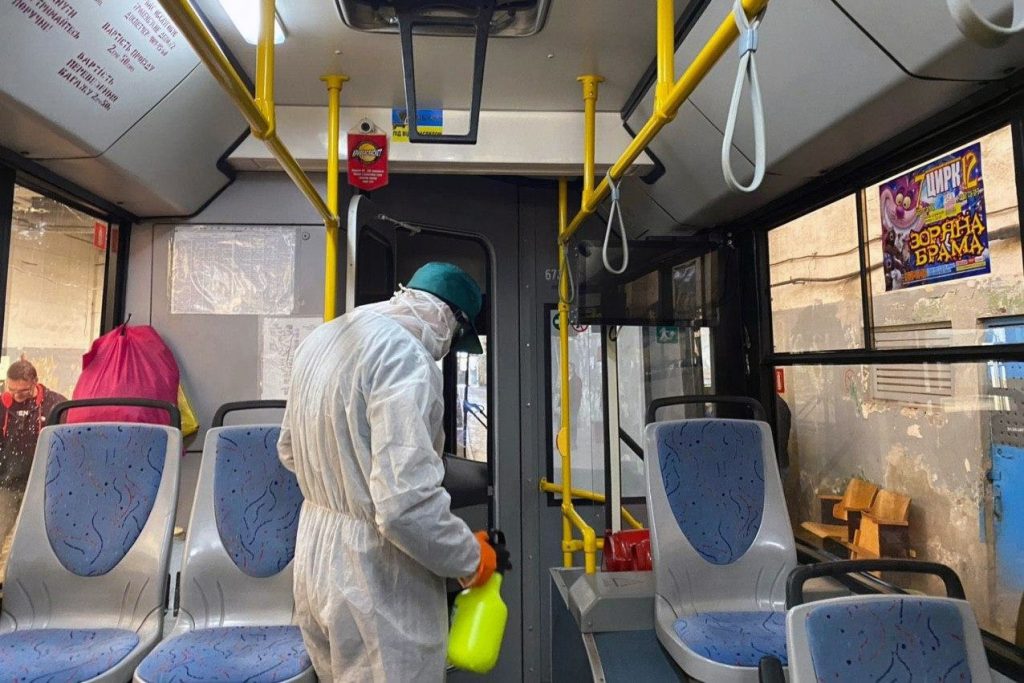Abkhazia and South Ossetia are preparing for the coronavirus outbreak to hit, closing their borders with Georgian-controlled territory among other measures.
So far, neither has reported any confirmed cases of the virus. On 13 March, the Abkhazian authorities dismissed reports circulating on social media about several coronavirus casualties as ‘fake news’.
[Read our live updates about the coronavirus crisis in the Caucasus]
According to Marina Kochiyeva, Chief Medical Officer of South Ossetia, they have placed six individuals showing ‘clinical symptoms’ of COVID-19 in hospital and ordered another 18 who returned from high-risk countries to self-isolate at home.
On Monday, the South Ossetian authorities banned all foreign citizens except for Russians from entering. Their Foreign Ministry said the measures would last until 15 April.
This followed a similar move by Abkhazia on 14 March.
On 18 March, Russia banned entry to residents of South Ossetia and Abkhazia who do not hold Russian citizenship until May. Many local residents do hold Russian passports, due to a Russian-government policy of handing them out.
Despite banning all public events on 12 March until 7 April, Abkhazia is still set to hold early presidential elections on 22 March. Russia has announced it will not be sending observers.
After recovering from an illness unrelated to the virus, opposition frontrunner Aslan Bzhaniya has also resumed meeting with voters in person.
South Ossetia cancelled all public events on 16 March and two days later closed all educational institutions.
As South Ossetian students return to the region after at Russian universities switched to online courses, the authorities urged them to act responsibly and to self-isolate.
Closure of Georgian checkpoints
Both Abkhazia and South Ossetia have closed all crossing points with Tbilisi-controlled territory over the coronavirus crisis.
South Ossetia’s security council announced they were closing the crossing points indefinitely on 27 February, a day after the first case of coronavirus was confirmed in Georgia.
Abkhazian authorities followed suit, closing crossings with western Georgia’s Samegrelo region on 14 March.
Movement across the South Ossetian border has been restricted since late August last year, after a stand-off between Georgian and South Ossetian authorities over the Tsnelisi area.
Before closing again completely on 27 February, residents of Akhalgori, an area predominantly populated by ethnic-Georgians, were allowed to access Georgia-controlled territory only once every two months, to collect their pensions and undergo medical procedures.
South Ossetia’s only other connection with the outside world, the Roki tunnel to Russia’s North Ossetia, has been closed since 17 March due to heavy snowfall.
In recent years, South Ossetian cargo importers have complained of problems crossing the Nizhny Zaramag checkpoint in North Ossetia due to Russian regulations, which recently caused a shortage of some basic products in South Ossetia.
Aid from Russia and the UN
Both Abkhazian and South Ossetian authorities have appealed to Russia for aid in dealing with the virus.
Anna Gagloyeva, Deputy Chief Medical Officer of South Ossetia, told local outlet Yuzhnaya Osetiya that two of their staff were being trained at the Stavropol Research Institute for Plague Control, in Russia’s Stavropol Krai.
On Monday, Ekho Kavkaza cited the South Ossetian Service for Human Welfare as saying they were expecting to receive test kits this week from Russia.
Abkhazia’s Health Ministry reported they had received technical and medical aid on 14 March from an ‘international agency under the United Nations’.
This included masks with filters, medical overalls, gloves, and shoe covers.
According to Abkhazia’s Chief Medical Officer Lyudmila Skorik, it also included a thermal scanner which was to be installed at the River Psou checkpoint with Russia.
The ministry said they expected a second shipment on 17 March.
A rejected offer of help from Georgia
Georgian Prime Minister Giorgi Gakharia also offered to ‘help Georgian citizens on the occupied territories wherever possible’ on 17 March. This offer was flatly rejected by both the Abkhazian and South Ossetian authorities.
Talking to Russian state-owned media Sputnik Ossetia on 16 March, South Ossetia’s Foreign Minister, Dmitry Medoyev, accused Georgia of ‘using a problem like the coronavirus for public relations’ instead of treating infected Georgians.
Medoyev reportedly said that they had no reason to trust the official numbers of infected people coming from the Georgian authorities.
He also reiterated that the US-funded Richard Lugar Centre for Public Health Research in Tbilisi was a ‘threat to the security of the whole Caucasus region’.
[Read more on OC Media: Analysis | Who is afraid of the Lugar Centre?]
Due to the coronavirus crisis, the next round of the Geneva discussions, which were slated for 31 March–1 April, have also been postponed indefinitely.
The Geneva discussions were set up to address the consequences of the August 2008 war and are co-chaired by the EU, OSCE, and UN. The talks involve Georgian, Russian, Abkhazian, and South Ossetian negotiators, as well as US representatives.
For ease of reading, we choose not to use qualifiers such as ‘de facto’, ‘unrecognised’, or ‘partially recognised’ when discussing institutions or political positions within Abkhazia, Nagorno-Karabakh, and South Ossetia. This does not imply a position on their status.




 18 March 2020
18 March 2020



